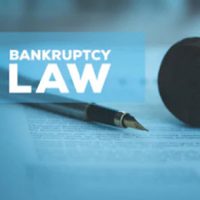New Income Limits for Chapter 7 Bankruptcy

Consumers who can’t repay their debts have their choice of 2 consumer bankruptcies—Chapter 7 and Chapter 13. They are named after specific chapters in the Bankruptcy Code and are very different. With a Chapter 7, you can wipe out unsecured debts, but you will probably lose non-exempt property.
With a Chapter 13, you don’t lose any property, but you must pay your disposable income to your creditors for a period of 3 to 5 years. At the end of the Chapter 13 repayment plan, your debts get discharged.
For most consumers, Chapter 7 is a better deal. It’s faster, for one thing, often taking only a few months to complete. You also end up paying less to your creditors (unless you have substantial non-exempt assets). But Congress wanted to reserve Chapter 7 for only the neediest people. For that reason, you must pass a qualifying means test.
How Much Income is Too Much?
There are two ways to pass the test. The first involves comparing your income to the median income in your state. Median means midpoint; 50% of the people will have an income below this amount and 50% will have an amount above this point.
The median income changes each year and has recently been updated for Florida for those cases filed after May 1, 2019. Your median income is based on your family size and is as follows:
- Single-earner household: $49,172
- Two-person family: $60,400
- Three-person family: $66,872
- Four-person family: $78,833
- More than four people: add $9,000 for each additional person
If your income is below this threshold, you automatically pass the means test. So if you are single and have an income of $40,000, you pass.
What Happens if Your Income is Above the Median?
Well, you can still qualify, but your attorney will need to take a more intensive look at your monthly expenses. You will subtract your monthly bills from your monthly income to come up with your disposable income.
Qualifying expenses to deduct include:
- Rent or mortgage
- Utilities
- Clothing
- Food
- Taxes
- Transportation expenses
- Childcare costs
- Health care expenses
- Court-ordered payments, such as child support or spousal support
You won’t help yourself by cranking up your expenses, since you will be limited in how much you can deduct for each expense. For example, you can’t deduct the full amount of a luxury penthouse apartment. Instead, there are national or local standards that represent the maximum you can deduct for certain expenses.
After coming up with your disposable income, your attorney will multiply it by 60 to determine your disposable income for a 5-year period. If you are below a certain threshold, you will still qualify for Chapter 7.
Are You Swamped with Debts? Contact a Seasoned Plantation Bankruptcy Lawyer
At Nowack & Olson, we can help distressed consumers consider their options, including which bankruptcy chapter to file under if they decide that going through bankruptcy is the right choice for them.
For help getting started, contact our Plantation Chapter 13 bankruptcy attorneys today. You can schedule a free, no-risk consultation with an attorney by calling 888-813-4737.
Resource:
justice.gov/ust/eo/bapcpa/20190501/bci_data/median_income_table.htm
https://www.floridabankruptcynow.com/lil-kim-asks-judge-to-drop-her-bankruptcy-case/
